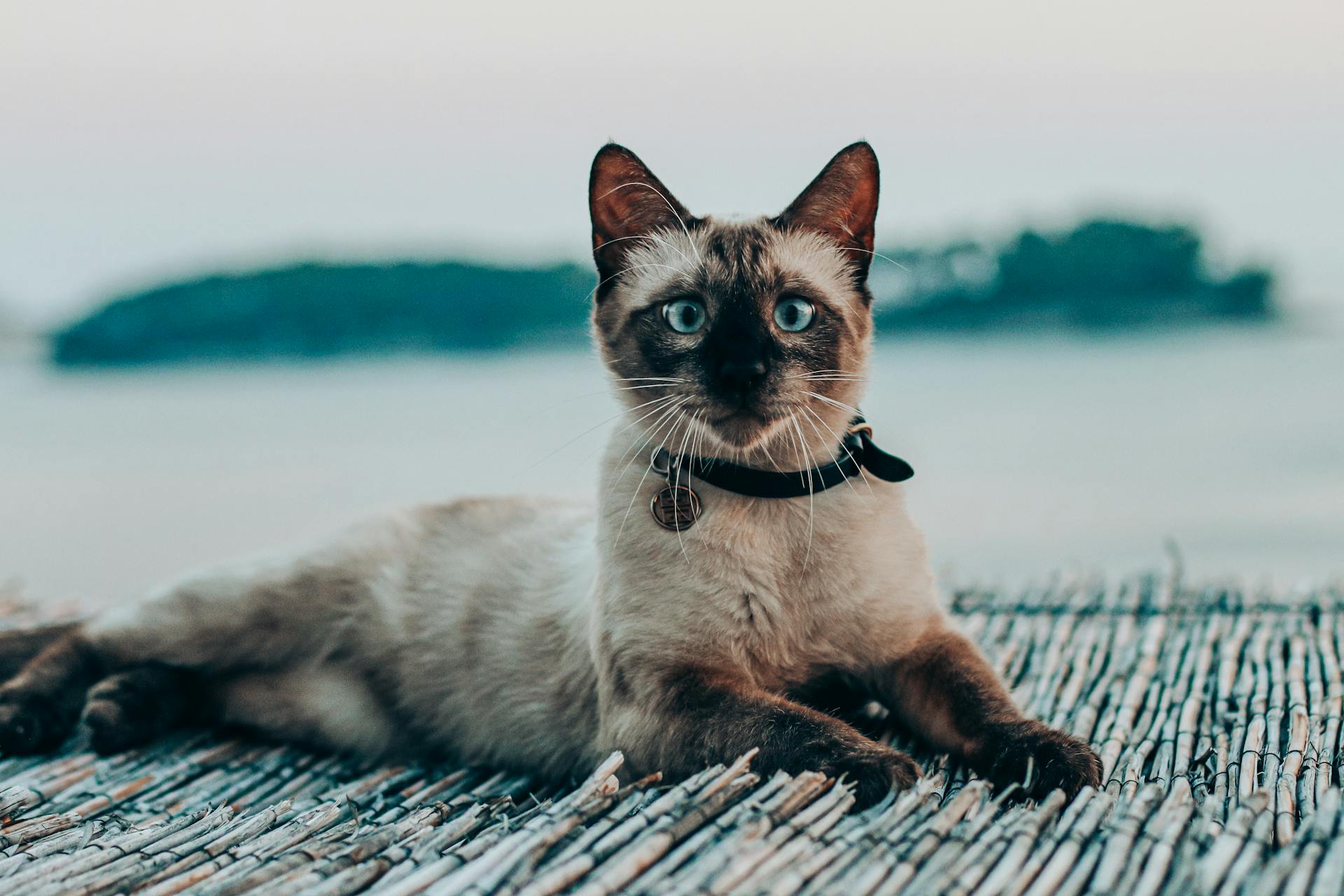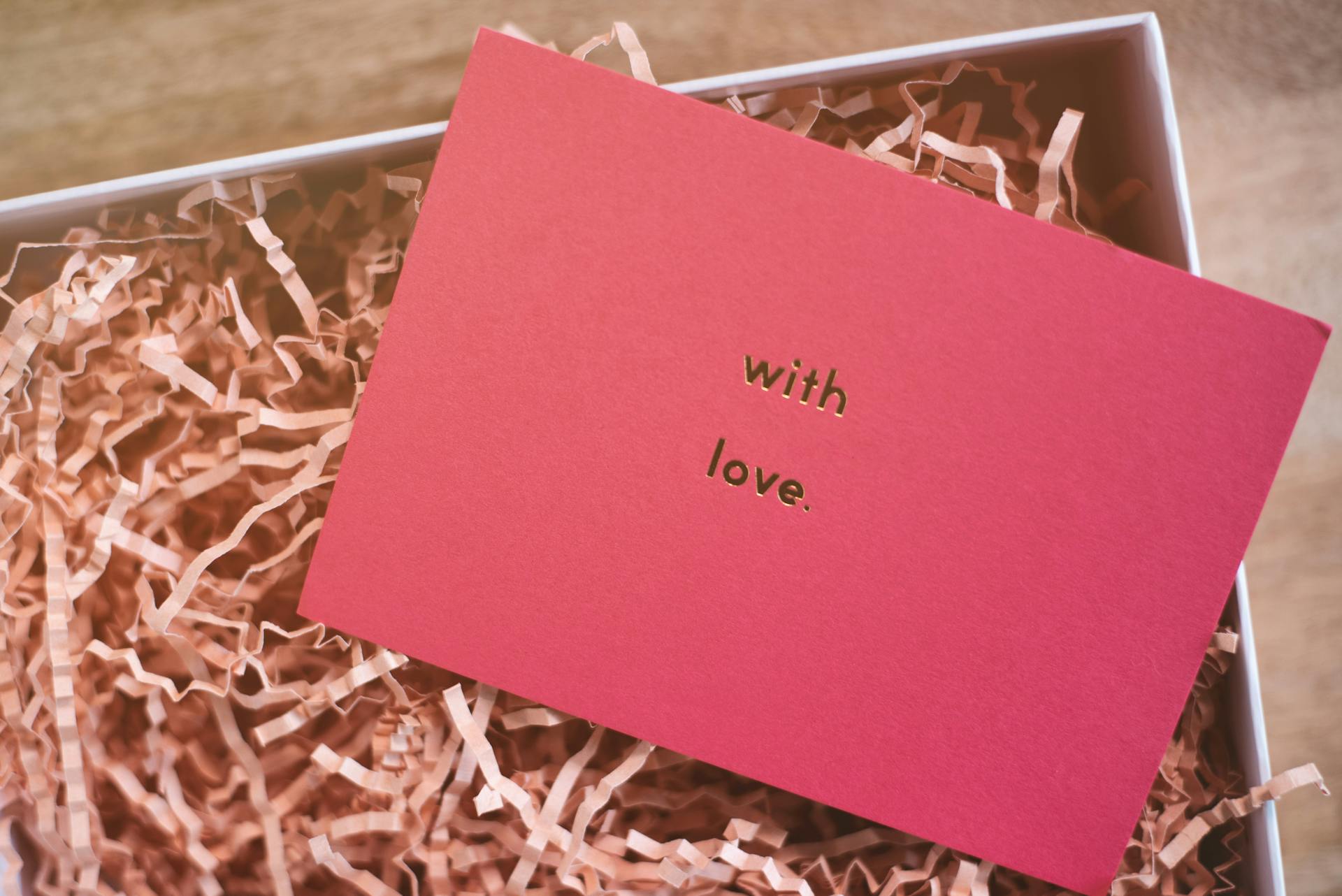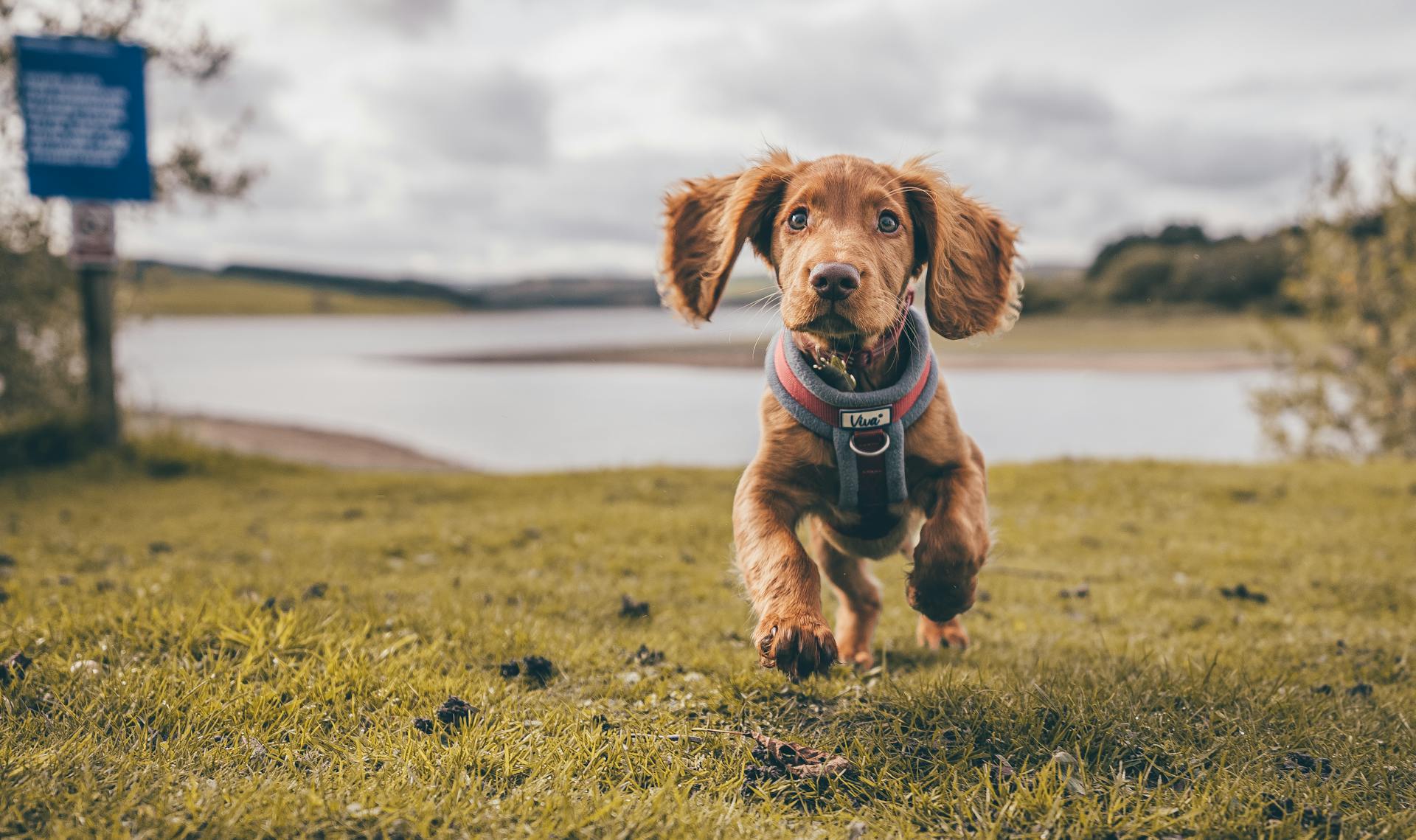
If you're looking for a more comfortable way to manage your cat's recovery after surgery, you've come to the right place. Cats are notorious for their ability to remove Elizabethan collars, making recovery a frustrating process for both you and your cat.
One option is to use a soft, flexible cone of comfort, which is designed to be more comfortable for your cat to wear. These cones are typically made of a soft, foam material that allows for easier movement and reduced irritation.
A second option is to use a recovery suit, which is a full-body garment that covers your cat's body and prevents them from licking or biting at their stitches. These suits are usually made of a lightweight, breathable material and come in different sizes to fit your cat comfortably.
In addition to these options, you can also try using a pheromone-infused product to help calm your cat and reduce stress during the recovery period.
You might like: Dogtra E Collar How to Use
Elizabethan Collar Alternatives
If your cat strongly dislikes wearing a traditional Elizabethan collar, there are alternatives to consider. Inflatable collars are a great option, as they don't usually block your cat's vision. These blow-up devices attach to the cat's collar and go all the way around their neck.
Unlike traditional cones, inflatable e-collars are designed to extend outward instead of forward, making walking and eating less awkward for your cat. This design also allows for more peripheral vision, which can be a big relief for cats.
Some other options for your cat may include recovery suits, padded rings and donuts, and cloth cones. These alternatives can be more comfortable for your cat and may be a better fit for their needs.
Here are some of the alternatives to traditional Elizabethan collars:
- Inflatable collars: These blow-up devices are lightweight and made of soft fabric, making them more comfortable for your cat.
- Recovery suits: These can be a great alternative for cats who don't like traditional collars.
- Padded rings and donuts: These large, padded or inflatable collars can be more comfortable for your cat and allow for more visibility.
- Cloth cones: These cones are made of sturdy but collapsible cloth, making them a more comfortable option for your cat.
Choosing a Dog Cone
Choosing a dog cone can be a bit overwhelming, especially with all the options available. The location of your pet's injury plays a big role in selecting the right cone, as some areas require a specific type of coverage.
Your pet's disposition is also a crucial factor - some dogs may dislike traditional plastic cones and will fight to get them off, while others may prefer the increased visibility of a donut-shaped cone.
Durability and ease of cleaning are also important considerations, especially if your pet will need to wear the cone for longer than 14 days. A durable and easy-to-clean cone will save you time and stress in the long run.
Here are some key factors to consider when choosing a dog cone:
It's essential to consult with your veterinarian to determine the best cone for your pet, as they can provide guidance based on your pet's specific injury, temperament, and lifestyle.
Choosing a Dog Cone
Choosing a dog cone can be a daunting task, especially with so many options available. The right cone for your furry friend depends on several factors, including the location of their injury or wound. For example, if your dog has an abdominal incision, a recovery suit might be a better choice than a traditional plastic cone.
Your dog's disposition also plays a role in choosing the right cone. If they're prone to fighting against traditional plastic cones, a donut-style cone with increased visibility might be a better option.
The durability and ease of cleaning of the cone are also important considerations. If your dog will be wearing the cone for an extended period, you'll want to choose a product that's easy to clean and durable. Plastic recovery cones are generally less expensive than cloth cones or recovery suits, but may not be the best option if your dog requires a longer recovery time.
Here are some key factors to consider when choosing a dog cone:
Ultimately, it's essential to consult with your veterinarian to determine the best cone for your dog's specific needs. They can advise you on the most suitable option based on your dog's injury, temperament, and lifestyle.
Longtime Search
If you're like some pet owners, you've been searching for a solution to your dog's licking or biting issues for a long time.
Some pet owners have tried inflatable collars, but they can be a hassle to deal with.
You'll be happy to know that there are other options available that can help prevent your dog from licking or biting certain areas.
Pet owners have reported that certain collars work wonders in stopping neck movement and preventing licking or biting issues.
One such collar has been praised for its effectiveness in making dogs more comfortable and confident.
Check this out: Flea Collars Work
Cloth and Pillow Options
Cloth and pillow options are a great way to go if your cat is having trouble with traditional e-collars. They're made from softer, more flexible material that's much less likely to catch on things.
One type of cloth cone is the soft e-collar, which attaches to your cat's collar in the same way as a traditional cone. However, it's made from a softer, more forgiving material that's much more comfortable for your cat.
Cloth cones are also easy to purchase from most pet stores, or you can even make one yourself if you're crafty. Just keep in mind that some determined cats may be able to manipulate the fabric to get to their stitches.
A pillow collar is another option that's similar to the inflatable donut collar. It goes all the way around your cat's neck without protruding forward past their face, allowing them to keep most of their peripheral vision.
Pillow collars are filled with fluff or possibly beads, making them a comfortable place for your cat to rest their head. However, consider your cat's size and strength before attaching a pillow collar, as they can be heavier than other models.
Here are some pros and cons of cloth and pillow collars to consider:
Frequently Asked Questions
What to do if a cat won't wear an e-collar?
If your cat resists wearing an e-collar, consult your veterinarian about alternative options, such as soft fabric cones or recovery suits, to help them adjust comfortably. They can recommend the best solution for your cat's specific needs.
What is better than a cone for a cat?
For cats, padded rings or donuts are a more comfortable alternative to cones, offering improved peripheral vision and reduced discomfort. They're a great option to consider for cats who need to recover from surgery or injuries.
Sources
- https://www.petmd.com/dog/general-health/cone-of-shame-what-it-is-and-cone-alternatives
- https://www.embracepetinsurance.com/waterbowl/article/dog-cone-alternatives
- https://cats.com/cat-cone-alternatives
- https://www.thesprucepets.com/ecollar-alternatives-for-dogs-and-cats-3385606
- https://baltousa.com/products/balto-neck-eco-e-collar-alternative-feline
Featured Images: pexels.com


